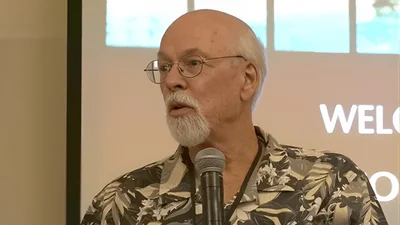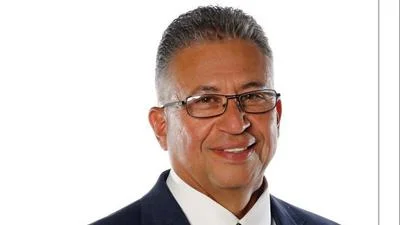On July 15, the New Mexico Business Coalition (NMBC) hosted a Business and Social Hour (BASH) and asked Albuquerque mayoral candidates, Tim Keller and Manny Gonzales, how they would address the issue of homelessness in the city.
Keller is the incumbent mayor, while Gonzales is in his second term as Bernalillo County Sheriff. The two candidates were asked during a hypothetical "job interview" for the mayor's office how they would reduce the rate of homelessness in Albuquerque.
Keller mentioned that under his leadership, Albuquerque was able to house hundreds of the city's homeless population in empty hotels during the pandemic and kept a shelter on the West side of the city open 24/7, which he noted has never been done before. He also brought up the city's purchase of the Gibson Medical Center to give the homeless population an alternative to being on the street.
"We have about 5,000 homeless people in our community, and I will tell you we have to deal with them in chunks of one hundred and that's why we purchased the Gibson Medical Center," Keller said.
Keller added that if elected mayor, he would prioritize the opening of a planned Gateway Center at the old Lovelace Hospital which would be an intake center to receive homeless people and get them the services they need including job training, addiction treatment, and securing more permanent housing.
"When people are literally living on the street, you have to find a way and a place to put them. The idea behind the Gateway Center, the old Lovelace, is that folks will actually go there and then we'll sort them out and get them the help they need," Keller said. "We have to have somewhere for them to go besides our streets, and that's why we got to push forward on that Gateway Center."
Gonzales would take a different approach to the homelessness issue. While criticizing Keller's policies on homelessness, saying the incumbent mayor had a record of "investing in homelessness," Gonzales questioned whether things like putting the homeless in hotels might actually be inviting the homeless to the city while increasing Albuquerque's problems with homelessness and crime. Citing a statistic indicating homelessness had increased by 30% over the last four years, the Sheriff said he does not support "bird feeder" policies.
"We need to make sure that we're not inviting homeless people here by holding them up in hotel rooms, providing them with any kind of funding and encouraging that type of environment for the citizens of Albuquerque," Gonzales said.
Gonzales proposed a "carrot and the stick" approach to dealing with the issue of homelessness. Needed services for the homeless would play the function of the carrot, and Gonzales said that he would prioritize funding for police to enforce laws that deal with violations related to homelessness including illegal camping in parks and petty shoplifting. He also stated that he didn't believe that the purchase of the Lovelace Center was in the best interest of the city.
According to a 2020 report from the Department of Housing & Urban Development to Congress, New Mexico had the highest rate of chronic homelessness in the country at 51%. They reported an 82.3% increase in chronically homeless individuals in the state between 2007 and 2020, making New Mexico 5th in the country for increases in chronic homelessness during that span.
In January of 2020, the Albuquerque Journal reported that the entire state had seen a 27% increase in the homeless population from 2018 to 2019. Within that same timeframe, Albuquerque alone saw a 15% increase.








